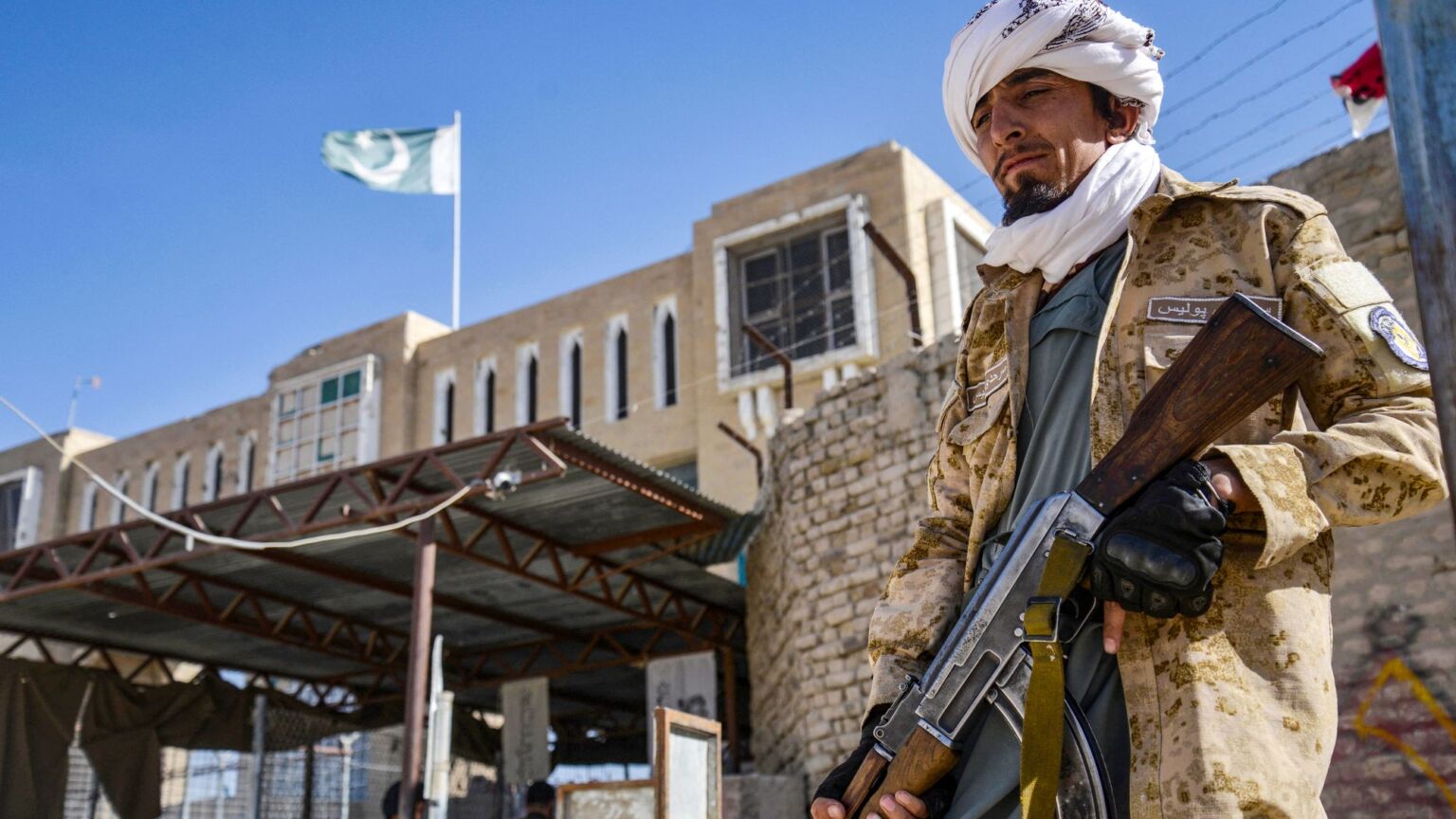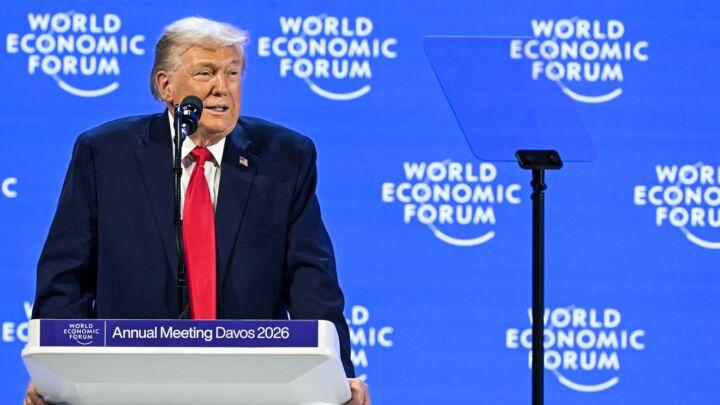What lit the fuse for the Pakistan-Afghanistan clashes?
Islamist extremists, given safe haven by the Taliban, are exporting their terror across the border.

Want unlimited, ad-free access? Become a spiked supporter.
Dozens were killed over the weekend in fighting between Pakistan and Afghanistan – the deadliest clashes between the two countries since the Taliban returned to power four years ago.
Afghanistan claims that it killed 58 Pakistani soldiers between Saturday evening and Wednesday, when a 48-hour ceasefire came into force, while Islamabad says just 23 were killed. For its part, Pakistan says that 200 Taliban and affiliated terrorists were ‘neutralised’, though the Taliban insists this figure was just nine. Lack of media access in the border regions means that none of the claims can be independently verified.
The tensions that exploded over the weekend, triggered by Pakistani airstrikes on Kabul last week, had been brewing for some time. Since the Taliban’s ascent to power in 2021, Pakistan has accused it of providing refuge to the Tehrik-e-Taliban Pakistan (TTP), an internationally recognised terrorist organisation. These suspicions are not baseless. Last year, the Pakistani military experienced its deadliest 12 months in more than a decade, with around 2,500 people and close to 400 soldiers killed. This year is on track to be even worse. Undeniably, the vast majority of these attacks have been carried out by the TTP in the flashpoint provinces of Khyber Pakhtunkhwa and Balochistan.
The Taliban has shown little inclination to use its influence with the TTP to restrain these attacks. This is hardly surprising, considering how much they have in common. Both are based on the Deobandi branch of Islam – an incredibly reactionary, puritanical and restrictive Sunni sect that emerged in northern India in the late-19th century.
The bond between the TTP and the Taliban isn’t merely theological. They fought alongside each other during the Soviet Union’s long, unsuccessful invasion of Afghanistan in the 1980s and they have been brothers in jihad ever since.
While Pakistan has shown a willingness to tolerate the Taliban – even notoriously sheltering Osama bin Laden, who supported the Taliban financially – this latitude does not extend to the TTP. This is because the TTP aspires to merge what is currently western Pakistan, particularly the Khyber Pakhtunkhwa province, with Afghanistan. The TTP also does not recognise the border between Pakistan and Afghanistan – the Durand Line – which was established in 1893.
Last week, a seismic diplomatic event added fuel to the fire. Taliban foreign minister Amir Khan Muttaqi visited India – Pakistan’s mortal enemy, who it fought a war with as recently as May. During the week-long visit, a suite of economic and diplomatic initiatives were announced, culminating in the once unimaginable prospect of India re-opening its embassy in Kabul. Prior to this, Islamabad had long accused New Delhi of backing the TTP. While there is little evidence of the kind of links Pakistan imagines, there is every reason to think that New Delhi would be happy for Pakistan to be embroiled in a war on its other border.
Any alliance between India and Afghanistan, however, is likely to be very short-lived. After all, Taliban-style Islamism and the vehemently anti-Muslim nationalism championed by Indian prime minister Narendra Modi hardly make a stable foundation for a bilateral relationship.
The antagonism between Pakistan and Afghanistan could be equally fleeting. This is more owing to their interdependence more than anything else. Indeed, both of their weak agriculture-dependent economies have already been severely impacted by the sealing of the border following the outbreak of war.
What’s more, a rupture in Pakistan-Afghanistan relations does not suit global powers. Saudi Arabia, which last month signed a historic defence pact with Pakistan, stepped in amid the clashes this week, telling both countries to exercise restraint. China, whose Belt and Road Initiative depends on a decent working relationship between Pakistan and Afghanistan, even offered to mediate the dispute this week.
Still, if there is one thing history has proven time and again, the northern borders of Pakistan and Afghanistan are the last place a foreign power would want to intervene in. Both Pakistan and the Taliban know this. Whether this is conducive to peace, however, only time will tell.
Kunwar Khuldune Shahid is a writer based in Pakistan.
£1 a month for 3 months
You’ve hit your monthly free article limit.
Support spiked and get unlimited access.
Support spiked – £1 a month for 3 months
spiked is funded by readers like you. Only 0.1% of regular readers currently support us. If just 1% did, we could grow our team and step up the fight for free speech and democracy.
Become a spiked supporter and enjoy unlimited, ad-free access, bonus content and exclusive events – while helping to keep independent journalism alive.
———————————————————————————————————————————–
Exclusive January offer: join today for £1 a month for 3 months. Then £5 a month, cancel anytime.
———————————————————————————————————————————–
Monthly support makes the biggest difference. Thank you.








Comments
Want to join the conversation?
Only spiked supporters and patrons, who donate regularly to us, can comment on our articles.